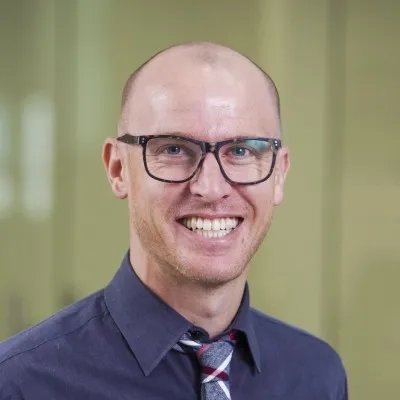The annual Esri Young Scholar Award promotes geospatial science as a career and lifestyle choice for Australian university students – fuelling greater interest in an industry that’s helping shape the future.
GIS has become increasingly accessible for every member of an organisation, and the knowledge gained from the software is now seen as essential for informed commercial and government decision-making.
Put simply: it's no longer considered a ‘niche’ technology.
Over the past two decades, GIS has rapidly evolved into a centralised system for the entire enterprise, and those with the skills to maximise its capabilities are increasingly in demand.
Past Esri Young Scholar Award (EYSA) recipients are aware of this rise, and have ridden the momentum to forge burgeoning careers in the geospatial industry.
Their winning projects analysed varied topics, including flood risk, public transport accessibility, native tree dieback and graffiti removal. They showcased the science and the benefits it can bring to the fore.
Yet, at the core of their past and present geospatial work still remains a sense of wonderment.
“When I dug deeper into geospatial science, I found it’s not just geography, it’s a much more powerful discipline than that – a science that puts you at the forefront of a changing world.” Grace Lin, 2014 EYSA winner.
“The realisation that it’s possible to take a bird’s eye view photo of any spot on Earth’s surface and do some cool analysis with it – that blew my mind.” Iurii Shendryk, 2016 EYSA winner.
During interviews for this post, geography was even referred to as “a party for all other sciences”.
“It underpins everything we do. It explains how everything relates to everything else in space on the earth, and in that sense it dictates some really important things for humans.” Billy Haworth, 2015 EYSA winner.
“Geography enables a smarter world by helping us plan and make decisions about the spatial dimensions of our planet. Without it we wouldn’t know where everything is, we would be much more disconnected, and we would most certainly be late for work.” Iurii Shendryk.
Introduced in 2013, the Esri Young Scholar Award shines a spotlight on the impressive work being done by geospatial students throughout Australia, and gives fledging GIS enthusiasts the opportunity to share their research project with the global geospatial community at the Esri User Conference (UC) in San Diego, which is attended annually by more than 16,000 people.
“The Esri UC opened my eyes to gaps in my GIS knowledge and skills, and motivated for me to go learn more. I was impressed to learn of so many ways people and projects are using spatial information, maps, and Esri tools to better understand and improve the world.” Billy Haworth.
“What excited me most about my trip to the UC was the opportunity to showcase my own research project to an international audience and connect with other Esri Young Scholars from around the world.” Rudolf Espada, 2013 EYSA winner.
And for the Young Scholars, opportunities to continue growing their GIS skillsets followed them back to Australia.
“I have leveraged tools I learned about at the UC in both my teaching and research work – for example, using the Collector app to map green space during workshop exercises with high school students, or sharing live data during conference presentations using Story Maps, and then giving delegates easy access to that information post-event.” Billy Haworth.
“The UC strengthened my existing GIS skills by introducing me to new products such as CityEngine, in addition to smart tools and workflows like Python and spatial pattern analysis. I was then able to put my knowledge into action during my research project, and subsequently my work as a university lecturer.” Rudolf Espada.
When discussing the role geospatial science will play in our future, the general consensus is it’s going to become all-pervasive in both traditional and non-traditional sectors.
“Not only will geospatial science underpin many public services, but the public will increasingly contribute to the collection and use of data in varied and unprecedented ways. Also, driverless cars!” Billy Haworth.
“The emerging field of geomedicine – which provides more precise understanding around the links between patient health and place of residence – will become common practice. At the same time, the near-future of geolocation, with millimetre-accurate GPS receivers, will enable us to find pinpoint locations and index-search our physical possessions.” Iurii Shendryk.
“Computer sciences and geospatial sciences won’t be separated in the near future. Geointelligence is the way of the future.” Grace Lin.
And as the field of geospatial science becomes increasingly ubiquitous, the potential reach of the work has created myriad career paths for students entering the field. Just one bit of advice:
“Don’t be too absorbed by the technology and data of geospatial science. Remember, the data represents ‘real’ things on earth, including people.” Billy Haworth.
The Esri Young Scholar Award is open to Australian university students currently studying geospatial sciences. If you’d like to submit a project, or you know someone who should, find out how you can get involved.

